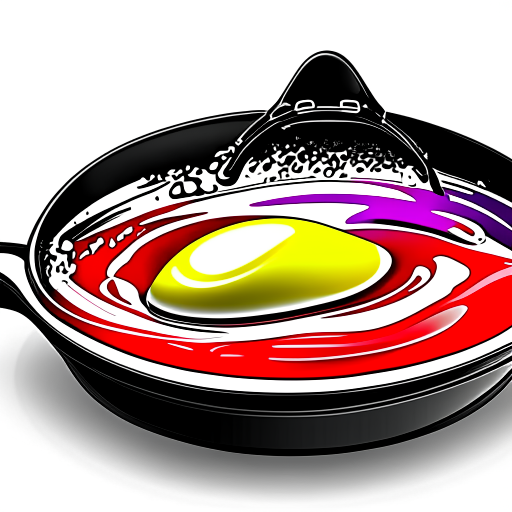Indulge your senses and embark on a journey through time as we explore the rich history of olive oil, often referred to as the “liquid gold” of the Mediterranean. This ancient elixir has been an integral part of culinary traditions for centuries, originating in the Mediterranean region and spreading its golden essence across the globe. From its origins in ancient civilizations to its influence on modern cuisine, olive oil has woven itself into the fabric of our food culture, leaving an indelible mark on our taste buds and our hearts. Join us as we uncover the intriguing story behind this iconic ingredient and discover the captivating world of olive oil.

Ancient Origins
Origin of Olive Trees
The origin of olive trees can be traced back to ancient civilizations in the Mediterranean region, particularly in present-day Greece and Syria. These trees have been cultivated for thousands of years for their fruit and the valuable oil that can be extracted from it.
Cultivation of Olives
Olive cultivation began around 6000 BCE in the Levant, and it quickly spread across the Mediterranean basin. The Mediterranean climate, with its mild winters and hot, dry summers, proved to be ideal for the growth of olive trees. Olive groves became a common sight throughout ancient civilizations, providing a sustainable source of food and oil.
Discovery of Olive Oil
The discovery of olive oil is believed to have occurred around 4000 BCE. Early civilizations recognized the potential of pressing olives to extract their oil, which became a valuable resource. The ancient Egyptians, Greeks, and Romans all documented methods of olive oil extraction and its various uses.
Early Uses of Olive Oil
In ancient times, olive oil served various purposes beyond culinary uses. It was used for lighting lamps and as an ingredient in cosmetics and medicinal ointments. Olive oil was highly prized for its moisturizing and soothing properties, making it a popular component of ancient beauty regimes. Furthermore, it held religious significance and was used in sacred ceremonies.
Mediterranean Civilization
Olive Oil in Ancient Greece
Olive oil held great importance in ancient Greek society. It was not only a dietary staple but also an essential element of their culture. Greeks venerated the olive tree and considered it a gift from the gods. Olive oil was used in cooking, as fuel for lamps, and as a base for perfumes and medicines. It was also used to anoint athletes and victors in the ancient Olympic Games.
Olive Oil in Ancient Rome
The Romans inherited their love for olive oil from the Greeks and further expanded its production and consumption. Roman cuisine heavily relied on olive oil as a cooking ingredient and a dressing for salads. Olive oil production became a significant industry, with vast olive groves planted throughout their vast empire.
Olive Oil Trade Routes
The demand for olive oil grew steadily in ancient times, leading to the establishment of extensive trade routes. Olive oil was exported from the Mediterranean to various parts of the world, including North Africa, the Middle East, and even as far as India and China. These trade routes greatly contributed to the spread of Mediterranean culture and the popularity of olive oil.
Symbolism of Olive Oil
Olive oil held profound symbolic meaning in ancient Mediterranean civilizations. It represented fertility, abundance, and wisdom. It was also associated with peace and was often used as a sacred offering in religious ceremonies. The olive branch, a symbol of peace, was a common motif in ancient art and architecture.

Medieval Times and Renaissance
Olive Oil in Medieval Europe
During the Middle Ages, olive oil production and consumption declined in Europe due to the cooler climate and the rise of other edible oils. However, olive oil remained an important component of Mediterranean cuisine and was still produced in regions with suitable climates.
Olive Oil in the Renaissance
With the dawn of the Renaissance, interest in Mediterranean culture and its culinary traditions rekindled among the European elite. Olive oil regained popularity as a luxurious and exotic ingredient. It became a symbol of refinement and wealth, with aristocrats and nobles showcasing their status by using olive oil in their kitchens and dining halls.
Olive Oil in Religious Ceremonies
Throughout history, olive oil has played a central role in religious rituals and ceremonies. In Christianity, it has been used for anointing the sick and in the sacrament of baptism. It was also an essential element in the production of holy chrism, a sacred oil used in sacraments such as confirmation and ordination.
Olives and Olive Oil in Art and Literature
The allure of olives and olive oil extended beyond the kitchen and religious settings. In art and literature, olives and olive oil have been portrayed as symbols of peace, abundance, and beauty. Paintings, sculptures, and literary works often incorporate olive branches and olive trees to convey these powerful messages.
Modern Production and Consumption
Olive Oil Production Techniques
Modern olive oil production employs advanced techniques to ensure the highest quality oil. Mechanical harvesting and multiple methods of oil extraction, such as cold-pressing and centrifugation, have replaced traditional methods. These innovations have increased efficiency and improved the overall quality of olive oil.
Different Types of Olive Oils
There are various types of olive oils, each with distinct flavor profiles and culinary uses. Extra virgin olive oil, obtained through the first pressing of olives, is the highest quality and most prized. Other types include virgin olive oil, refined olive oil, and olive pomace oil, which is extracted from the olive pulp.
Health Benefits of Olive Oil
Olive oil has long been recognized for its numerous health benefits. It is rich in monounsaturated fatty acids, which are believed to contribute to heart health and lower cholesterol levels. Olive oil is also a source of antioxidants, vitamins, and minerals, making it a valuable addition to a balanced diet.
Culinary Uses of Olive Oil
Olive oil’s versatility extends to its culinary uses. It is a staple in Mediterranean cuisine, where it is used for cooking, dressing salads, sautéing vegetables, and marinating meats. Its distinct flavor can enhance the taste of dishes and add a rich, fruity note to various recipes.

Olive Oil in Mediterranean Culture
Olive Oil in Mediterranean Cuisine
In Mediterranean cuisine, olive oil takes center stage. It is a fundamental ingredient in dishes from Greece, Italy, Spain, and other countries in the region. From drizzling over fresh tomatoes and mozzarella to creating succulent grilled fish, olive oil adds depth and flavor to countless recipes.
Olive Oil in Traditional Medicines
Olive oil has been used for its medicinal properties for centuries. It has been employed in traditional remedies for soothing skin conditions, relieving inflammation, and promoting digestion. In Mediterranean countries, it is still considered a natural remedy for various ailments.
Olive Oil in Beauty and Cosmetics
The benefits of olive oil extend beyond the kitchen and the realm of health. The cosmetic industry recognizes its moisturizing and nourishing properties, making it an essential ingredient in skincare and haircare products. Olive oil can be found in moisturizers, soaps, shampoos, and other beauty products.
Olive Oil Festivals and Celebrations
Olive oil holds such cultural significance in the Mediterranean that it is often celebrated through festivals and events. These gatherings showcase the region’s rich olive oil heritage, offering visitors the chance to taste different varieties, learn about its production, and partake in traditional activities related to olive cultivation.
Olive Oil and Health
Nutritional Properties of Olive Oil
Olive oil is considered a healthy fat due to its high content of monounsaturated fatty acids, which are known to have positive effects on cardiovascular health. It also contains phenolic compounds and vitamin E, which have antioxidant properties. Additionally, olive oil is low in saturated fat and cholesterol, making it a nutritious choice compared to other cooking oils.
Mediterranean Diet and Longevity
The Mediterranean diet, which includes generous amounts of olive oil, has been associated with various health benefits and increased longevity. Studies have shown that adhering to a Mediterranean diet reduces the risk of heart disease, certain cancers, and neurodegenerative diseases. Olive oil’s presence in this diet is believed to contribute significantly to these positive outcomes.
Role of Olive Oil in Cardiovascular Health
Olive oil’s impact on cardiovascular health is widely recognized. Its high monounsaturated fat content helps lower cholesterol and reduces the risk of heart disease. The consumption of olive oil has also been linked to improved blood pressure control and a decreased risk of stroke.
Olive Oil and Antioxidants
The antioxidant properties of olive oil are linked to its phenolic compounds, which act as free radical scavengers. These compounds have been associated with a range of health benefits, including reduced inflammation, improved immune function, and protection against chronic diseases such as cancer and cardiovascular disorders.
Protecting and Preserving Olive Oil
Quality Certification and Regulations
To ensure the authenticity and quality of olive oil, numerous certification and regulatory bodies exist. These organizations implement standards and guidelines that producers must adhere to. Certification seals, such as the Protected Designation of Origin (PDO) and the Extra Virgin Olive Oil (EVOO) labels, guarantee that the oil meets specific criteria of quality and origin.
Storing and Preserving Olive Oil
Proper storage and handling are crucial for preserving the flavor and quality of olive oil. It is recommended to store olive oil in a cool, dark place, away from direct sunlight and heat sources. Additionally, using airtight containers and avoiding exposure to air can help prevent oxidation and maintain the oil’s freshness.
Combatting Counterfeit Olive Oil
The olive oil industry has faced challenges with counterfeit and adulterated products. Some unscrupulous producers or distributors mix olive oil with inferior oils or dilute it with other substances to increase profits. To combat this issue, stricter regulations, improved traceability systems, and increased awareness among consumers are essential.
Sustainable Olive Oil Production
As public awareness of environmental sustainability grows, the olive oil industry has made efforts to adopt sustainable practices. These include the use of organic farming methods, efficient irrigation systems, and responsible waste management. Sustainable production aims to protect the environment, promote biodiversity, and ensure the long-term viability of olive oil production.
Olive Oil Around the World
Olive Oil Beyond the Mediterranean
While the Mediterranean remains the primary source of olive oil, its popularity has transcended geographical boundaries. Olive oil production has expanded to countries such as Argentina, Australia, and the United States. Although these regions may not have the same long-standing history of olive cultivation, they have successfully adapted the Mediterranean’s techniques to produce high-quality oils.
Global Production and Consumption Trends
Olive oil has become a global commodity, with production and consumption trends shifting worldwide. The Mediterranean countries, including Spain, Italy, and Greece, remain the top producers, but countries like the United States and Australia have increased their production to meet growing demand. As awareness of its health benefits spreads, olive oil consumption continues to rise in various parts of the world.
Cultural Adaptations of Olive Oil
As olive oil makes its way into different culinary traditions, it undergoes cultural adaptations. It merges with local flavors and becomes an integral part of various cuisines worldwide. From drizzling it over hummus in the Middle East to using it in traditional Mexican mole, the versatility of olive oil allows it to complement diverse food cultures.
Promotion and Marketing of Olive Oil
Efforts to promote and market olive oil involve educating consumers about its quality, health benefits, and culinary uses. Tastings, workshops, and culinary events bring the world of olive oil closer to individuals, enabling them to appreciate its unique characteristics. Olive oil competitions recognize excellence in production and provide a platform for producers to showcase their finest products.
Challenges and Controversies
Adulteration and Fraud in the Olive Oil Industry
The olive oil industry has faced challenges related to adulteration and fraud. Some unscrupulous producers and distributors attempt to pass off lower-quality oils as extra virgin olive oil or mix olive oil with inferior oils. These practices not only deceive consumers but also undermine the reputation of genuine producers. Monitoring, testing, and stringent regulations are essential in combating this issue.
Environmental Impact of Olive Oil Production
The production of olive oil, like any agricultural activity, has an environmental impact. Issues such as water usage, soil erosion, and the use of pesticides are significant concerns. Implementing sustainable farming practices, reducing chemical inputs, and embracing organic cultivation methods are crucial steps toward minimizing the environmental footprint of olive oil production.
Challenges to Small-Scale Olive Oil Producers
While large-scale olive oil producers dominate the market, small-scale producers face numerous challenges. Limited resources, lack of access to distribution networks, and market competition can make it difficult for small producers to thrive. Supporting local producers and fostering direct relationships between growers and consumers are vital for the continued success of these small-scale operations.
Debate on Health Benefits and Smoke Point
The health benefits of olive oil have been widely acknowledged, but its smoke point has sparked some debate. The smoke point refers to the temperature at which an oil begins to smoke and degrade, potentially releasing harmful compounds. While extra virgin olive oil has a lower smoke point compared to some other oils, it is still suitable for most cooking methods when used within its recommended temperature range.
Future of Olive Oil
Advancements in Olive Oil Extraction
Advancements in technology and research continue to revolutionize olive oil production. From innovative harvesting equipment to improved extraction methods, these advancements aim to increase efficiency and quality. Continuous improvements in extraction processes ensure that producers can deliver the purest and finest olive oil to consumers.
Innovations in Olive Oil Packaging
Packaging plays a vital role in preserving olive oil quality and extending its shelf life. Innovations in packaging aim to protect the oil from light, air, and temperature fluctuations. Dark glass bottles, opaque containers, and airtight seals help maintain the oil’s freshness and prevent it from deteriorating prematurely.
Emerging Markets for Olive Oil
As the popularity of olive oil expands globally, emerging markets present exciting opportunities. Countries such as China, India, and Brazil, with their large populations and growing middle class, show increasing demand for quality olive oil. Meeting this demand requires educating consumers and ensuring a consistent supply of authentic olive oil.
Sustainability and Conservation Efforts
The future of olive oil production lies in sustainable practices and conservation efforts. This involves responsible management of water resources, the use of renewable energy, and minimizing waste. Supporting initiatives that protect biodiversity, preserve traditional olive groves, and promote environmental stewardship is essential for a sustainable and thriving olive oil industry.
As the history of olive oil unfolds, it becomes evident that this liquid gold from the Mediterranean holds a special place in the hearts and diets of millions around the world. From its ancient origins to modern production techniques, olive oil has not only contributed to the culinary delights of the Mediterranean but has also influenced cultures, symbolized peace, and enriched our health. As we navigate the challenges and embrace the opportunities of the future, olive oil continues to shine as a true embodiment of nature’s gift, offering us a taste of tradition, health, and sustainability.

